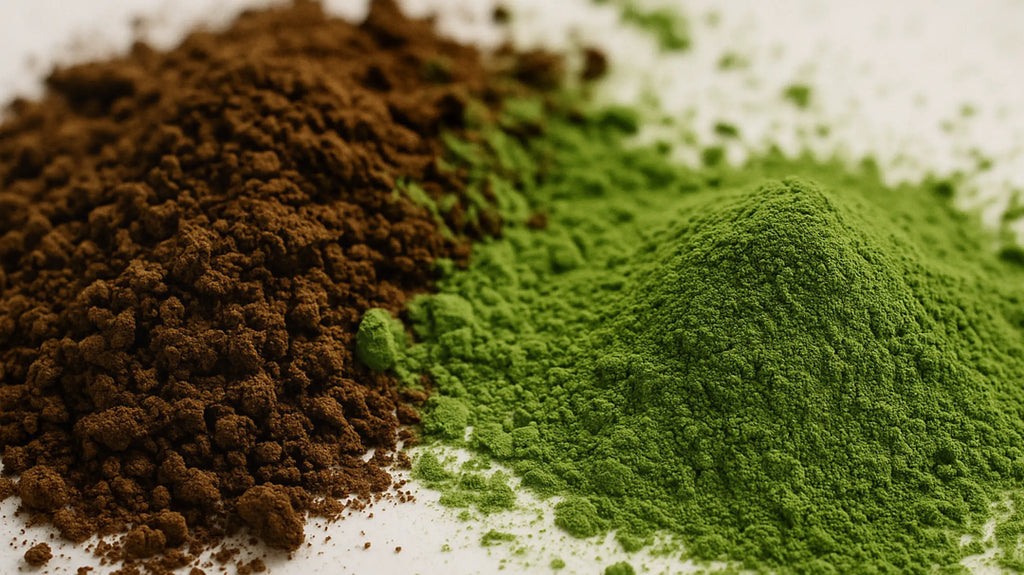Have you ever experienced butterflies in your stomach before a nerve-racking experience or felt content and uplifted after a comforting meal?
These sensations are more than mere coincidences and are in fact manifestations of the connection between your gastrointestinal system, better known as the gut, and brain. Researchers refer to this as the gut-brain axis which is a two way communication system that influences both physical and mental well-being. Let’s break down five essential links that contribute to this fascinating relationship and discover how nourishing these connections can benefit your overall health and have us smiling from the inside out.
Understanding the link between the Gut and Brain
1. The Vagus Nerve
The vagus nerve, or as it translates in latin the "wandering nerve”, serves as the primary communication highway between the gut and the brain. This extensive nerve network connects many organs, including the gut and the brainstem, facilitating the exchange of crucial information and signals. It plays a vital role in regulating digestion, heart rate, and swallowing. Importantly, the vagus nerve enables the gut and brain to exchange information about mood and stress levels, allowing for a profound influence of gut health on emotional well-being. Principles of mindful eating link back to stimulating the vagus nerve as simple exercises such as taking 5-10 deep slow belly breaths before eating can calm the system and turn on rest and digest mode!
2. Microbes
As we know the gut is home to trillions of microbes, collectively known as the gut microbiota. These tiny organisms play a significant role in maintaining gut health and have a surprisingly influential impact on brain function too. As the gut microbiota break down and utilise food for energy they produce more essential nutrients and metabolites, such as short-chain fatty acids such as butyrate (more on this later) as beneficial byproducts.
Additionally, they influence the strength and structure of the gut lining and modulate our immune system. Lastly the gut-brain axis needs the gut microbiota as these microbes are the ones communicating with the brain via the vagus nerve and through the production of various neurotransmitters (also more on these next)...
3. Neurotransmitters
Neurotransmitters are the chemical messengers that allow neurons in the brain to communicate with each other, so what does the gut have to do with these? Interestingly, the majority of neurotransmitters including serotonin and dopamine, are not only found in the brain but also in the gut. In fact, around 95% of serotonin, often referred to as our "happiness hormone," is produced in the gut.
This double presence of neurotransmitters means that the gut can directly influence mood and emotions. For example an imbalance in the gut microbiota can lead to an unfavourable amount of neurotransmitters, potentially contributing to mental health conditions.
4. Butyrate
Butyrate, a short-chain fatty acid, as we have learnt is a metabolite produced by certain gut microbes during the digestion of food, specifically dietary fibre. Butyrate has incredible anti-inflammatory properties, helps maintain and fuel the gut barrier cells, and can increase insulin sensitivity.
Outside of the gut, butyrate has shown promising effects on the brain through neuroprotective properties, which could potentially enhance cognitive function, and contribute to the management of neurological disorders. Consuming fibre-rich and full fat dairy foods is a great way to promote butyrate production and support the gut-brain axis.
5. Blood Sugar Balance
Stable blood sugar levels are important for many aspects of health including the gut-brain connection. Spikes and crashes in blood sugar can symptomatically show up as mood swings, irritability, and brain fog. The gut plays a crucial role in how the body breaks down and absorbs the sugars from the foods we eat. When blood sugar levels fluctuate too rapidly, it can disrupt the gut microbiota and lead to inflammation. This is why a macronutrient balanced diet with healthy fats and adequate protein is so important, in not only supporting stable blood sugar levels, but promoting a healthy gut environment that can positively influence brain function and emotional well-being.

Nourishing the Gut & Brain to feed your mood
To foster a healthy gut-brain connection we can incorporate more food groups that support gut health and provide essential nutrients for brain function. Here's our Nutritionists top 5 picks, all of which can be found in our Organic Whole Food Pack if you are interested in healthy prepared meals delivered to your door!
Fibre:
Focus on a diverse, fibre-rich diet including fruits, vegetables, whole grains, nuts, and seeds. These foods are foundational as they promote the growth of beneficial gut bacteria and increase butyrate production.
Ferments:
Fermented foods like yoghurt, kimchi, and sauerkraut can introduce probiotics strains that further support microbiome balance.
Polyphenols:
Polyphenols are plant chemicals broken down by gut bacteria that increase their population and may enhance cognition. Found in cocoa, green tea, olive oil, berries, colourful vegetables and coffee.
Omega 3 Fatty Acids:
These beneficial fats are abundant in oily fish and also found in chia seeds, flaxseeds and walnuts. Research search indicates that omega-3s can enhance the population of beneficial gut bacteria and lower the risk of brain disorders.
Tryptophan:
Tryptophan is an amino acid that is needed for the production of serotonin which can positively influence our mood. Foods including turkey, eggs, oats, nuts, seeds, milk and cheese are high in tryptophan.
Don't forget to stay hydrated (with increased fibre this is very important) and reduce processed foods, sugary snacks, and excessive alcohol consumption. A balanced, diverse diet, along with holistic lifestyle practices including regular exercise and stress management, can contribute to a harmonious gut-brain connection and improve your positive outlook.































































